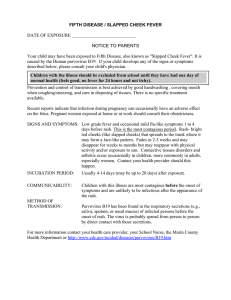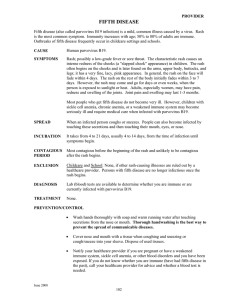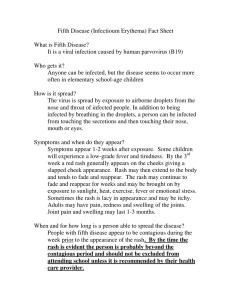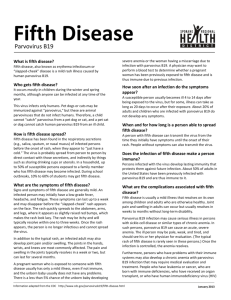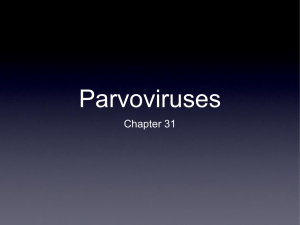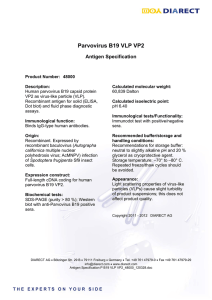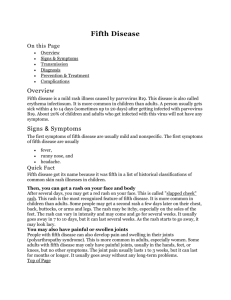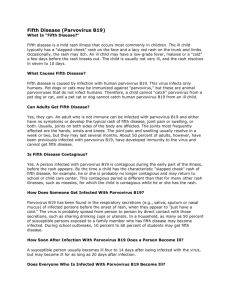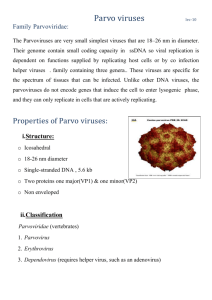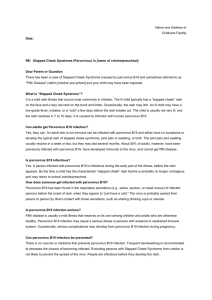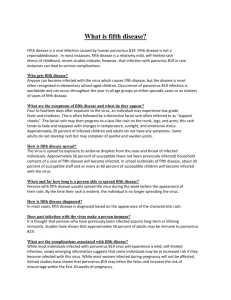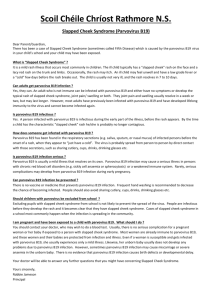Fifth disease
advertisement
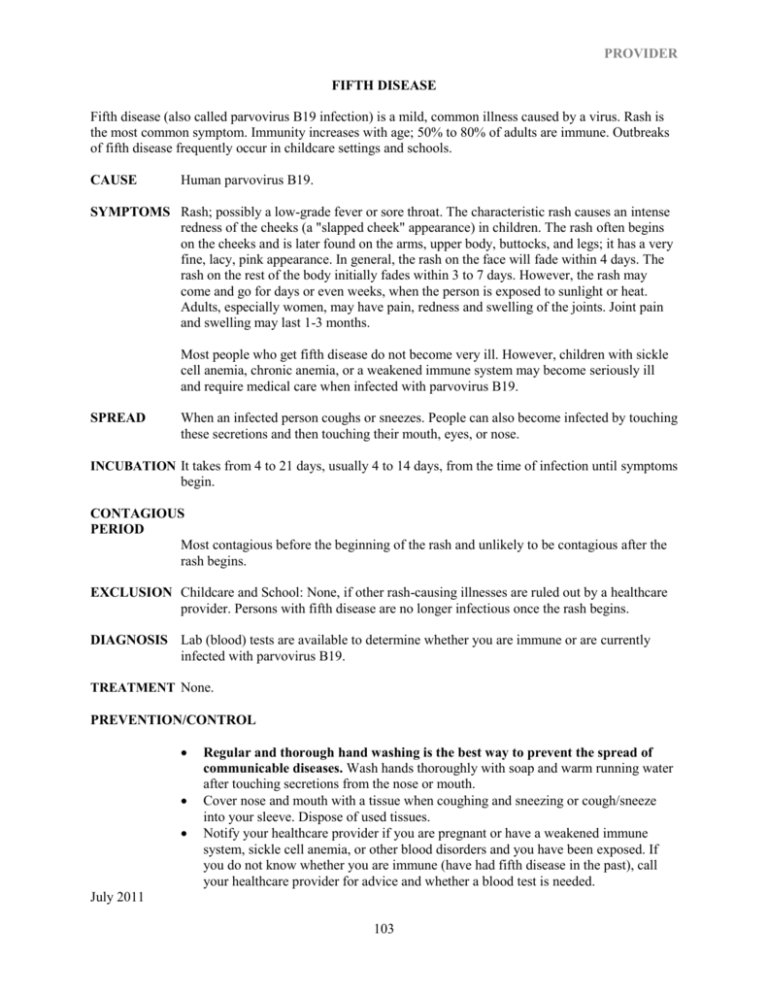
PROVIDER FIFTH DISEASE Fifth disease (also called parvovirus B19 infection) is a mild, common illness caused by a virus. Rash is the most common symptom. Immunity increases with age; 50% to 80% of adults are immune. Outbreaks of fifth disease frequently occur in childcare settings and schools. CAUSE Human parvovirus B19. SYMPTOMS Rash; possibly a low-grade fever or sore throat. The characteristic rash causes an intense redness of the cheeks (a "slapped cheek" appearance) in children. The rash often begins on the cheeks and is later found on the arms, upper body, buttocks, and legs; it has a very fine, lacy, pink appearance. In general, the rash on the face will fade within 4 days. The rash on the rest of the body initially fades within 3 to 7 days. However, the rash may come and go for days or even weeks, when the person is exposed to sunlight or heat. Adults, especially women, may have pain, redness and swelling of the joints. Joint pain and swelling may last 1-3 months. Most people who get fifth disease do not become very ill. However, children with sickle cell anemia, chronic anemia, or a weakened immune system may become seriously ill and require medical care when infected with parvovirus B19. SPREAD When an infected person coughs or sneezes. People can also become infected by touching these secretions and then touching their mouth, eyes, or nose. INCUBATION It takes from 4 to 21 days, usually 4 to 14 days, from the time of infection until symptoms begin. CONTAGIOUS PERIOD Most contagious before the beginning of the rash and unlikely to be contagious after the rash begins. EXCLUSION Childcare and School: None, if other rash-causing illnesses are ruled out by a healthcare provider. Persons with fifth disease are no longer infectious once the rash begins. DIAGNOSIS Lab (blood) tests are available to determine whether you are immune or are currently infected with parvovirus B19. TREATMENT None. PREVENTION/CONTROL Regular and thorough hand washing is the best way to prevent the spread of communicable diseases. Wash hands thoroughly with soap and warm running water after touching secretions from the nose or mouth. Cover nose and mouth with a tissue when coughing and sneezing or cough/sneeze into your sleeve. Dispose of used tissues. Notify your healthcare provider if you are pregnant or have a weakened immune system, sickle cell anemia, or other blood disorders and you have been exposed. If you do not know whether you are immune (have had fifth disease in the past), call your healthcare provider for advice and whether a blood test is needed. July 2011 103 FIFTH DISEASE PROVIDER INFORMATION FOR PREGNANT WOMEN/TEENS Usually there are no serious problems for a pregnant woman or her baby because of an exposure to fifth disease. About 50% of women have already had fifth disease (are immune), so they and their babies are not at risk. Even if a woman is susceptible and gets infected with parvovirus B19, she usually experiences only mild illness. Likewise, her unborn baby usually does not have any problems caused by parvovirus B19 infection. Rarely, parvovirus B19 infection will cause the unborn baby to have severe anemia and the woman may have a miscarriage. This occurs in fewer than 5% of all pregnant women who are infected with parvovirus B19 and happens more commonly during the first half of pregnancy. There is no evidence that parvovirus B19 infection causes birth defects or mental retardation. (For additional information on parvovirus B19 virus and pregnancy, see pgs 21-22) July 2011 104
